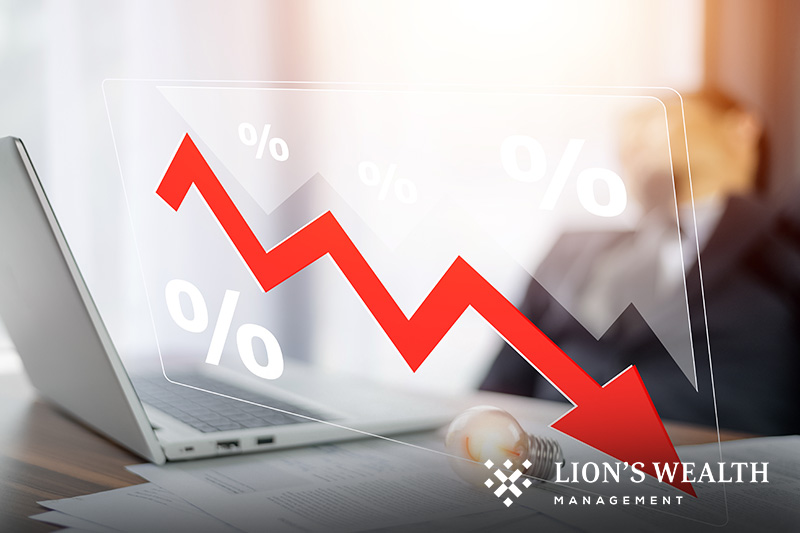Is the U.S. Economy on the Edge?
Jeffrey Gundlach—often dubbed the “Bond King” and one of the most closely followed macro thinkers in finance—just made headlines with a bold prediction:
“There’s a 60% chance the U.S. enters a recession in 2025.”
This isn’t a passing comment.
It comes from a detailed analysis of over two dozen indicators, and it’s sounding the alarm for investors and advisors alike.
In this post, we’ll break down:
- Why Gundlach sees trouble ahead
- What the key warning signs are
- What it could mean for your portfolio
And how smart investors are preparing right now
Why Should You Care What Gundlach Says?
Gundlach is the CEO and CIO of DoubleLine Capital, a firm managing over $100 billion.
He’s been right before—most notably predicting the 2007 housing collapse and the 2022 bond market fallout.
So when he says the risks are rising, people pay attention.
And this time, his forecast is based on data, not doomsday fear
The 5 Key Recession Signals Gundlach Is Watching
- The Yield Curve Is Reversing
For months, the 2-year and 10-year Treasury yield curve has been inverted—a classic recession signal. But Gundlach points to something even more powerful:
The 12-month moving average of that spread is climbing back toward zero.
Historically, once it crosses positive again, recession tends to follow soon after. - The Atlanta Fed GDP Model Collapsed
From +2.5% expected growth to -2.5% in just one week. That’s not a slow drift—it’s a sudden economic cliff. Gundlach links this to trade tensions and policy shifts, particularly escalating tariff threats - Labor Market Softness
ADP job numbers came in far below expectations.
Jobless claims are rising.
The Conference Board reports declining optimism around hiring.
This isn’t an overheated labor market cooling off—it’s an early sign of contraction. - The Dollar Is Weakening
While this may be good for exports, it signals global skepticism about U.S. economic strength.
Gundlach believes this could fuel outperformance in European equities over U.S. stocks. - Exploding Federal Deficits
Gundlach calls the current fiscal trend “disturbing.”
Deficit levels now rival those during the height of COVID stimulus—without a crisis driving the spending.
And investors are starting to notice.
So What Should Investors Do?
Gundlach’s message isn’t to panic—it’s to prepare.
Here’s what we’re advising our clients:
- Diversify Beyond U.S. Equities
Gundlach believes U.S. markets—particularly the “Magnificent Seven” tech giants—are overvalued and vulnerable.
Meanwhile, European equities are showing strength, fueled by a weakening dollar and improving fundamentals.
Smart money is already rotating internationally. - Build Defensive Allocations
This means:
– Longer-duration bonds (Gundlach is bullish on Treasuries)
– High-quality credit
– Dividend-paying stocks
– Hedged equity strategies
Recession doesn’t mean everything drops.
It means the wrong allocations drop hardest. - Prepare Your Tax Strategy
Use this time to:
– Harvest losses
– Convert IRAs to Roths while values are lower
– Reassess income streams in light of slower growth - Reinforce Asset Protection
Recessions can bring increased litigation, business disruptions, and financial strain. Ensure your structures—LLCs, trusts, insurance policies—are solid and up to date.
A Final Word: Gundlach’s Not Alone
Gundlach isn’t the only heavyweight calling for caution.
More analysts are quietly raising their recession odds.
But they’re not shouting it from the rooftops—yet.
By the time the headlines confirm it, the smart money will already have moved.
What You Can Do Now
Here’s our recommendation:
✅ Review your asset allocation
✅ Re-run your financial plan under a recession scenario
✅ Evaluate your risk, taxes, and protection
✅ Be flexible—just like in 2020, conditions can change fast
Ready for a Real Strategy?
If you’re a business owner, retiree, or managing generational wealth, now is not the time to guess.
Let’s talk.
We help clients build personalized, data-driven plans that can adapt to the real-world economy—not just hope.
Subscribe to our YouTube channel for weekly updates,
Like and share this post if it helped you think differently,
And most importantly—book a call if you want a true strategy for this next cycle.








